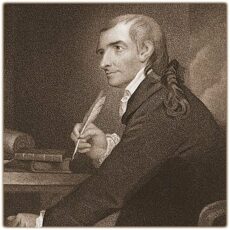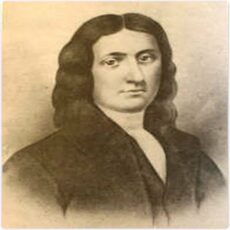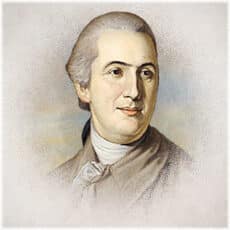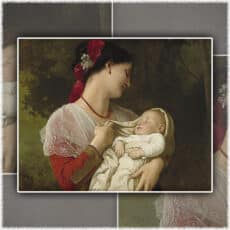Results for: "May Articles"
The results for your search of "May Articles" are listed below. Please click on the title or image to navigate to the desired item.
Please check the page navigation indicator at the top right or bottom right of the results to determine the number of search pages containing articles with the keyword(s): "May Articles".
The Christian Origin of Mother’s Day
Biography, Christian Calendar (Holidays), May Articles
Second Sunday of May United States annual observance of Mother's Day Origin of Mother's Day One of the many proofs of America's Christian origin and development is the history of her holidays. Though secularists and the irreligious have in recent decades both denied and denounced America's Christian origin, overwhelming evidence demonstrates this Christian influence. At a time when human relationships in America and around the world are confused and conflicting, observance of God's original design will always prove to be a blessing to the individual, the family, the church, the nation,...Read more... Read more... -->
Francis Hopkinson
American History, Christian Calendar (Holidays), Christian History, May Articles, Signers of Declaration of Independence
This post is part Signers of the Declaration of the series:Francis HopkinsonFrancis Hopkinson (September 21, 1737 – May 9, 1791), an American author, was one of the signers of the Declaration of Independence as a delegate from New Jersey. He later served as a federal judge in...Read more... Read more... -->
John Hart
American History, Christian Calendar (Holidays), Christian History, May Articles, Signers of Declaration of Independence
John Hart (c. 1711 – May 11, 1779) was a Delegate from New Jersey to the Continental Congress and a signer of the United States Declaration of Independence.Read more... Read more... -->
Robert Morris
American History, Christian Calendar (Holidays), Christian History, May Articles, Signers of Declaration of Independence
Robert Morris, Jr. (January 20, 1734 – May 8, 1806) was a Liverpool-born American merchant, and signer of the Declaration of Independence, the Articles of Confederation, and the United States Constitution.Read more... Read more... -->
Christian Living in May
Christian Calendar (Holidays), Christian Living Articles, May, May Articles, May Now
This post is part 5 of the series:Christian Living SeriesMay is the fifth month of the year in the Julian and Gregorian Calendars and in the Southern Hemisphere is the seasonal equivalent of November in the Northern Hemisphere and vice versa. May is named after the Greek goddess Maia, whom the Romans called Bona Dea, goddess of fertility—something quite common within paganism.Christian Living in May The month of May in many ways stands as the gateway to the summer. In early America and in the best and brightest periods of the history of Christianity, believers have been proactive in...Read more... Read more... -->
Current Resource
Quote Cloud
Secretary of Congress (1774-89)








